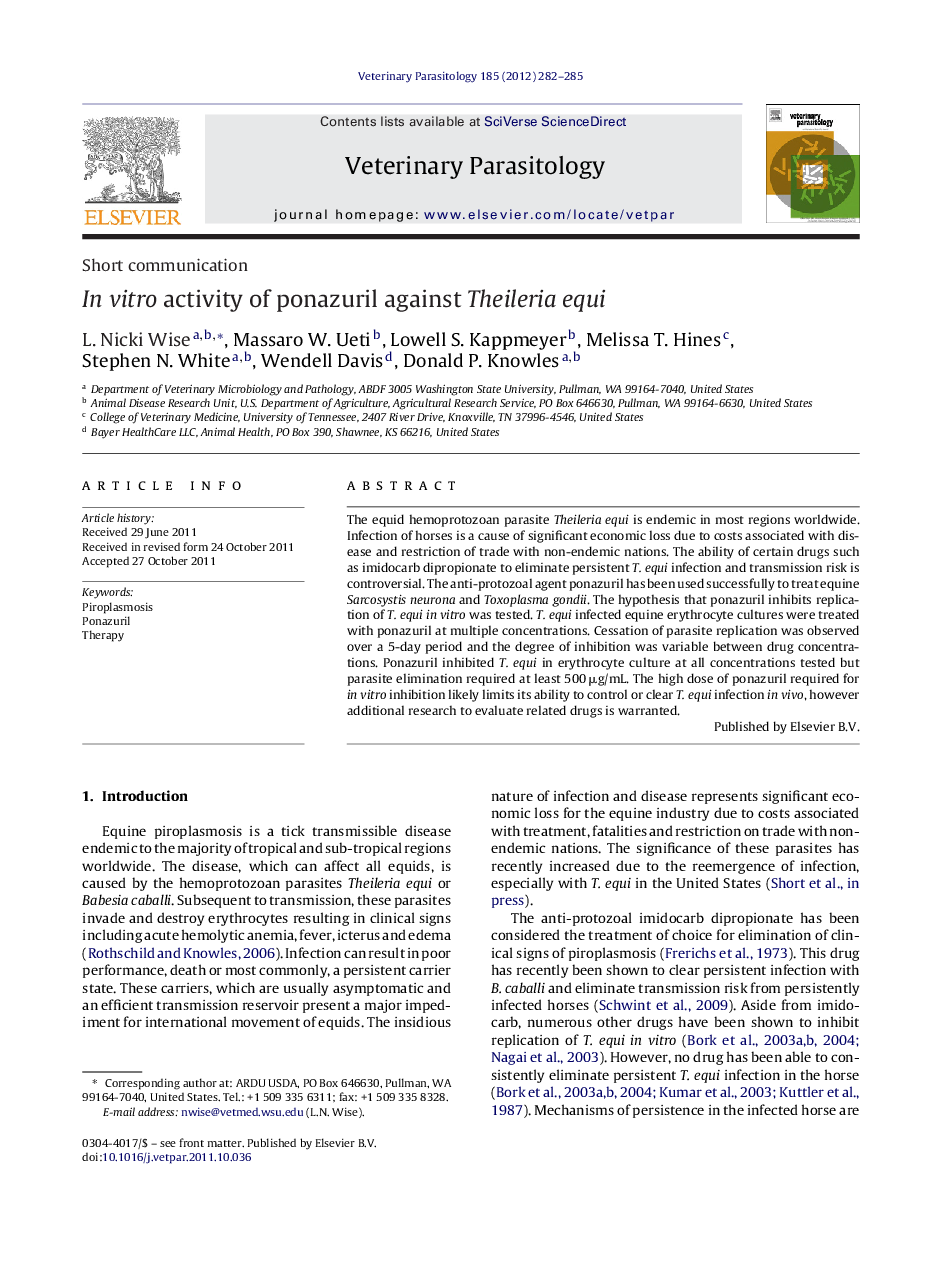| Article ID | Journal | Published Year | Pages | File Type |
|---|---|---|---|---|
| 5805157 | Veterinary Parasitology | 2012 | 4 Pages |
The equid hemoprotozoan parasite Theileria equi is endemic in most regions worldwide. Infection of horses is a cause of significant economic loss due to costs associated with disease and restriction of trade with non-endemic nations. The ability of certain drugs such as imidocarb dipropionate to eliminate persistent T. equi infection and transmission risk is controversial. The anti-protozoal agent ponazuril has been used successfully to treat equine Sarcosystis neurona and Toxoplasma gondii. The hypothesis that ponazuril inhibits replication of T. equi in vitro was tested. T. equi infected equine erythrocyte cultures were treated with ponazuril at multiple concentrations. Cessation of parasite replication was observed over a 5-day period and the degree of inhibition was variable between drug concentrations. Ponazuril inhibited T. equi in erythrocyte culture at all concentrations tested but parasite elimination required at least 500 μg/mL. The high dose of ponazuril required for in vitro inhibition likely limits its ability to control or clear T. equi infection in vivo, however additional research to evaluate related drugs is warranted.
